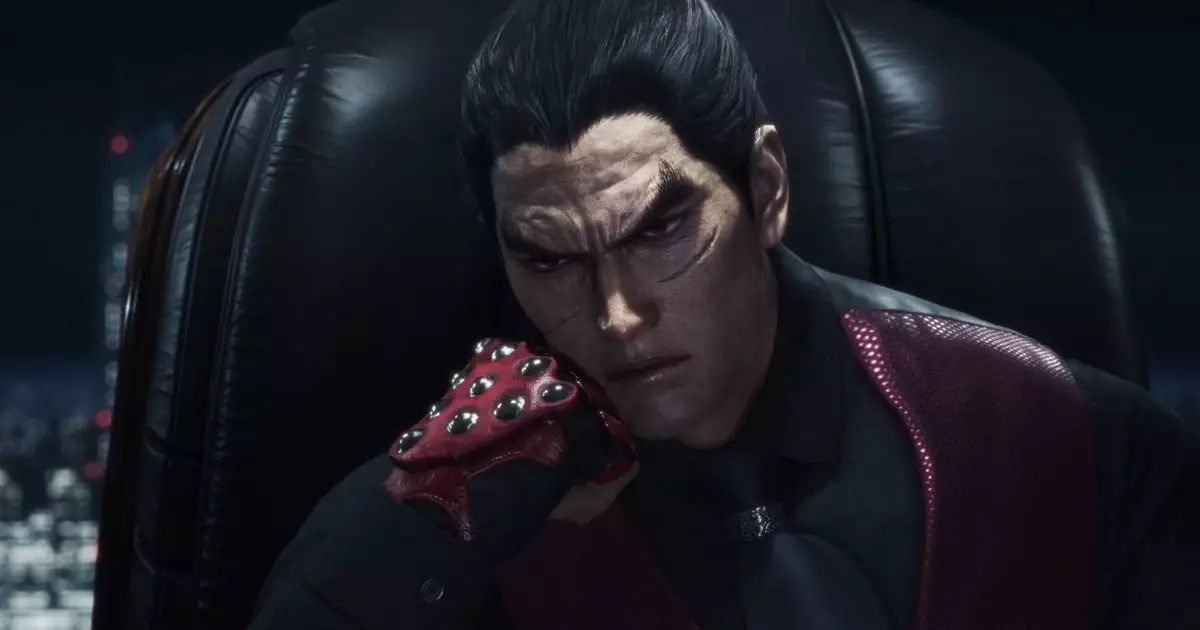Game development is often romanticized; visions of creative freedom, cutting-edge technology, and immersive worlds come to mind. However, the untold story often revolves around the immense pressure that developers face during the creation process. A recent revelation by Katsuhiro Harada, the long-time director of the iconic Tekken series, serves as a stark reminder of the psychological and physical toll that such pressures can extract. His troubling experience during the release of Tekken 4 is not merely anecdotal; it encapsulates a broader issue within the gaming industry that demands our attention.
The Weight of Expectations
In 2001, when Tekken 4 was unleashed upon the gaming community, it did not achieve the critical acclaim that its predecessors garnered. Harada’s retrospective view reveals that he was inundated with criticism, feeling as though he stood alone against an avalanche of discontent. The rigorous demands placed on him and his team—paired with the lack of support from Bandai Namco—culminated in a severe mental health decline. Harada’s personal health issues, which manifested in the alarming loss of hair on the right side of his body, are a striking illustration of how psychological stress can surface physically. While isolated hair loss may seem a peculiar symptom, it underscores a significant reality: stress can deeply impact our bodies, sometimes leading to autoimmune responses like alopecia areata.
The Ripple Effect of Critique
Harada’s story extends beyond personal pain; it highlights the patterns of community behavior in gaming. Criticism, especially in the fast-paced landscape of social media, can quickly turn on developers in their moment of vulnerability. It seems that time has a way of changing perspectives; what was once a point of contention may become lauded as artistry years later. Harada’s experience illustrates this irony, as he noted that the current consensus regards Tekken 4 as a masterpiece—a sentiment rediscovered only with hindsight. Such shifting opinions can be disheartening. For creators like Harada, the accolades received long after the fact may feel unsatisfactory in the shadow of immediate backlash.
The Plight of the Solitary Creator
Facing such intense scrutiny, Harada’s assertion that he lacked allies during the challenging time speaks volumes about the isolating nature of creative professions. Game developers frequently find themselves caught in a crossfire of expectations, often with insufficient support when things go awry. This isolation does not merely affect morale; it erodes mental health, which can lead to decisions that somebody might not consider under balanced conditions. Harada temporarily left Namco to recuperate before embarking on the next chapter of the Tekken franchise, an action indicative of the lengths individuals must go to preserve their well-being in high-stakes environments.
Lessons for the Industry
The overarching takeaway from Harada’s experience should serve as a clarion call for the gaming industry. It raises pertinent questions about the approaches to well-being, mental health, and support systems within game development. As game releases continue to bring with them immense anticipation and pressure, the industry must evolve. Future practices should prioritize mental health, providing developers with the resources and camaraderie needed to weather the storms of criticism and stress. Cultivating a supportive atmosphere can transform creative environments, enabling developers to innovate without compromising their health.
The Unwritten Stories Behind Games
As we witness the rollout of Tekken 8 and marvel at new characters and gameplay mechanics, it’s crucial to remain mindful of the untold narratives accompanying these titles. Behind every celebrated game lies the sweat, anxiety, and passion of creators who toil intensely to push their visions to fruition. Harada’s quest to include KFC’s Colonel Sanders as a character reflects the whimsical side of creative expression—yet beneath its surface lies the burden of relentless scrutiny. As players, it would be prudent to grace the creators with empathy, recognizing that with every punch and kick we witness on screen, real lives and emotional battles are at play.
In the final analysis, Harada’s poignant narrative serves not just as an anecdote but as an impetus for change within an industry that remains as innovative as it is demanding.

